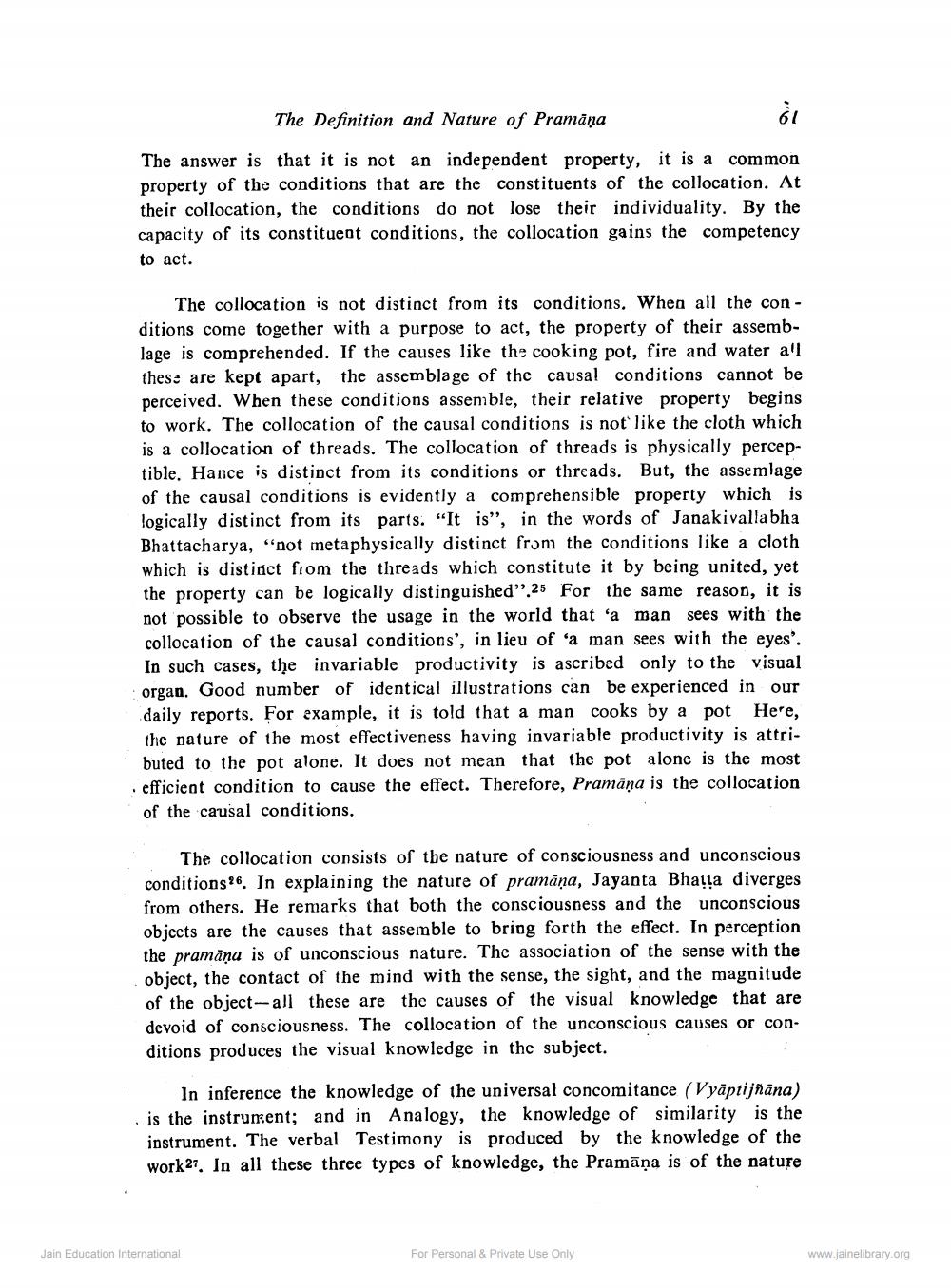________________
The Definition and Nature of Pramāņa
The answer is that it is not an independent property, it is a common property of the conditions that are the constituents of the collocation. At their collocation, the conditions do not lose their individuality. By the capacity of its constituent conditions, the collocation gains the competency to act.
The collocation is not distinct from its conditions. When all the conditions come together with a purpose to act, the property of their assemblage is comprehended. If the causes like the cooking pot, fire and water a'l these are kept apart, the assemblage of the causal conditions cannot be perceived. When these conditions assemble, their relative property begins to work. The collocation of the causal conditions is not like the cloth which is a collocation of threads. The collocation of threads is physically perceptible. Hance is distinct from its conditions or threads. But, the assemlage of the causal conditions is evidently a comprehensible property which is logically distinct from its parts. "It is", in the words of Janakivallabha Bhattacharya, "not metaphysically distinct from the conditions like a cloth which is distinct from the threads which constitute it by being united, yet the property can be logically distinguished" 25 For the same reason, it is not possible to observe the usage in the world that a man sees with the collocation of the causal conditions', in lieu of 'a man sees with the eyes'. In such cases, the invariable productivity is ascribed only to the visual organ. Good number of identical illustrations can be experienced in our daily reports. For example, it is told that a man cooks by a pot Here, the nature of the most effectiveness having invariable productivity is attributed to the pot alone. It does not mean that the pot alone is the most efficient condition to cause the effect. Therefore, Pramāna is the collocation of the causal conditions.
The collocation consists of the nature of consciousness and unconscious conditions?6. In explaining the nature of pramāņa, Jayanta Bhatta diverges from others. He remarks that both the consciousness and the unconscious objects are the causes that assemble to bring forth the effect. In perception the pramāņa is of unconscious nature. The association of the sense with the object, the contact of the mind with the sense, the sight, and the magnitude of the object--all these are the causes of the visual knowledge that are devoid of consciousness. The collocation of the unconscious causes or conditions produces the visual knowledge in the subject.
In inference the knowledge of the universal concomitance (Vyāptijñāna) is the instrument; and in Analogy, the knowledge of similarity is the instrument. The verbal Testimony is produced by the knowledge of the work 27. In all these three types of knowledge, the Pramāṇa is of the nature
Jain Education International
For Personal & Private Use Only
www.jainelibrary.org




